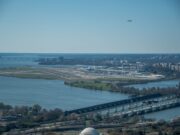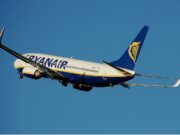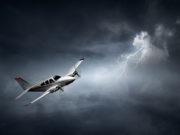The U.S. Federal Aviation Administration (FAA) should end a policy that exempts commercial balloon operators from obtaining medical certificates, the U.S. National Transportation Safety Board (NTSB) said Tuesday, citing the July 30, 2016, fatal crash of a hot air balloon in Lockhart, Texas.
The crash killed 15 balloon passengers and the pilot.
The NTSB found Tuesday that the probable cause of the accident was the pilot’s “pattern of poor decision making,” which led to the balloon striking power lines and then crashing to the ground. Contributing factors were the pilot’s “impairing medical conditions and medications that likely affected his decision making,” the NTSB said.
Accident investigators determined that the pilot had depression and attention deficit hyperactivity disorder and was taking several drugs that would have impaired his central nervous system and probably affected his decision-making ability, the NTSB said.
NTSB Chairman Robert Sumwalt added, “The pilot’s poor decisions were his and his alone. But other decisions within government, dating back decades, enabled his poor decision to fly with impairing medical conditions while using medications that should have grounded him.”
The NTSB also said that deteriorating weather conditions should have prompted the pilot to cancel the fatal sightseeing flight. Once in the air, the pilot should not have climbed the balloon above clouds, the NTSB said. While subsequently landing the balloon in reduced visibility conditions, the pilot had a diminished ability to see and avoid obstacles, and as a result, the balloon struck power lines, the NTSB said.
If FAA policy had not exempted commercial balloon pilots from medical certification, a medical examiner would have had an opportunity to identify the accident pilot’s medical conditions and his medications, the NTSB said, adding that the FAA also would have been able to review the pilot’s drug- and alcohol-related traffic offenses.
In approving the final report on the accident, the NTSB also approved two safety recommendations to the FAA, calling for an end to the medical exemption and urging the FAA to improve its oversight of balloon operators.


